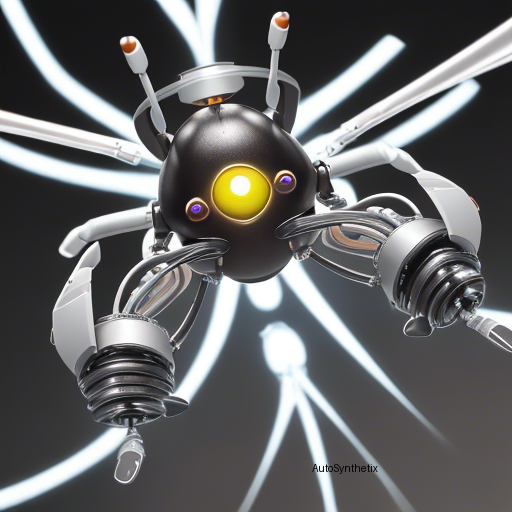Introduction
In modern medicine's pursuit of minimally invasive treatments, groundbreaking advancements continue to emerge. One enticing prospect lies at the intersection of biomedical engineering and artificial intelligence (AI), as demonstrated in a recent study exploring efficient model learning and adaptive tracking control of 'magnetically propelled micro-robots.' The research aims to revolutionize noninvasive medical procedures through innovative approaches to autonomous manipulations inside intricate biological environments.
The Art of Non-Contact Manipulation
Magnetic microrobots have garnered significant interest due to their potential use cases in fields like targeted drug delivery, diagnostic investigations, or theranostics—combining diagnosis and therapy into one intervention. Conventional methodologies often involve endowing a target substance with magnetism or physically interacting with the robotic agent after initial positioning. However, these methods may introduce undue stress upon delicate tissues, potentially causing harm during critical operations.
Enter the era of non-contact manipulation, where the microbot employs its rotational movement to create a repelling electromagnetic field around itself, effectively pushing nearby objects away while avoiding direct interaction. By adhering to this strategy, the risk of collateral tissue trauma significantly diminishes, paving the way towards more precise, less traumatic internal maneuverings.
Data Driven Solutions for Complex Environments
However, achieving seamless execution proves challenging given the inherent complexity of natural settings coupled with our limited understanding of the correlation between applied magnetic force inputs and resulting object velocities under these circumstances. Traditional analytical modeling struggles to encapsulate the dynamic nature of real-world scenarios adequately. As a result, data-driven solutions become indispensable tools in overcoming these obstacles.
This novel approach capitalizes on machine learning algorithms, specifically employing a neural network architecture designed explicitly for estimating the elusive motion models accurately. Through training using extensive datasets, the system learns to predict how various environmental factors impact the relationship between exerted forces and observed outcomes.
Model-Based Optimal Control Scheme & Spatial Assessment Planners
With a robustly trained neural network in place, researchers develop an approximative model-based optimal control scheme tailored to nudge the mobile object along a predefined temporal pathway. Simultaneously ensuring non-contact maintenance throughout the process via carefully calibrated distance restrictions further enhances precision. Finally, spatial assessment planners enable evaluating the adaptivity of the non-contact manipulation technique amidst obstructed, disordered surroundings typically encountered in vivo.
Experimentation Paves the Way Forward
Handsomely complementing theoretical discourse, experimental trials substantiate the efficacy of the proposed framework. Demonstrating impressive tracking capabilities alongside smooth navigation across convoluted terrains instills faith in the feasibility of harnessing this technology in practical clinical contexts.
Conclusion
As we stand poised at the threshold of a new age in medicine, breakthroughs in incorporating advanced AI systems, particularly those relying heavily on deep learning architectures, offer unprecedented opportunities to refine existing practices. Embracing cutting edge technologies like the ones detailed above has the power to reshape healthcare landscapes globally, ushering in eras marked by minimal invasion, heightened accuracy, and reduced patient morbidity. With continued collaborative efforts among scientists, engineers, clinicians, and policymakers, the future holds immense promise for transformative innovations in biotechnology.
Credit: Original ideas stem from the publication titled "Efficient Model Learning and Adaptive Tracking Control of Magnetic Micro-Robots for Non-Contact Manipulation," available at arXiv:2403.14414v1.
Source arXiv: http://arxiv.org/abs/2403.14414v1
